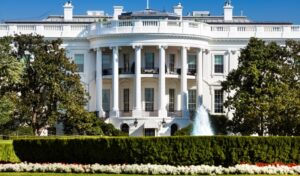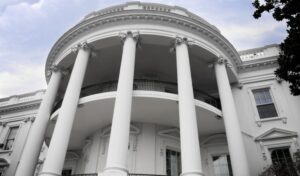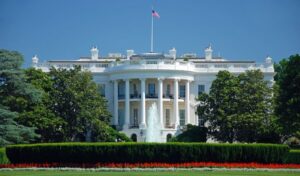
Scholars suggest that easy access to information may not increase meaningful public engagement in policymaking.
Do news providers have any effect on public participation in policy-making? Perhaps not, according to a recent paper released by a prominent think tank. The increase of easily accessible information—through a 24-hour news cycle, social media, and Internet webpages—appears to be having little effect.
The paper’s authors, Darrell M. West and Beth Stone of the Brookings Institution, argue that many news media outlets fail to engage the public in a meaningful analysis of current policy issues. The authors list a number of problems that contribute to polarization, inaccuracy, and shallowness in news reporting. Among them, the public’s desire for constant and immediate news content, increased competition from mobile and social media, pressure to report content first to gain attention, and a short “half-life” for individual news stories.
The authors argue that as news media outlets struggle to compete with instant, user-generated social content, they increasingly blur the boundaries between news, opinion and ‘infotainment.’ The paper’s authors suggest this trend is particularly harmful since user-generated social media content is full of inaccuracies and bias, and may rapidly become viral—thus misinforming large groups of people very quickly.
By imitating the competition, traditional news providers fail to “educate and inform the citizenry,” and instead serve simply “to entertain and grab the all-powerful click of consumers.” Further, the absence of meaningful news analysis “creates an end product which is not terribly informative in terms of public policy coverage.”
The paper’s authors join a choir of scholars disenchanted with the inability of new media to engage the American public in a concrete manner. However, the Brookings paper goes a step further by suggesting that news providers fail to instill the mindset necessary for meaningful civic involvement, if it ever does occur.
According to a variety of scholars, there is a potential for media outlets – old and new –to increase the public’s engagement in civic discourse. Some have argued that social media platforms in particular—for example, Facebook, Twitter, YouTube, and others—increase political engagement by youth as well as allow users to disseminate a variety of information, explore social issues, and form or shape politically-oriented groups. Nonetheless, there are few concrete measurements of changes in public participation; these studies focus mostly on informal interactions between individuals, rather than measurable engagement with policymaking institutions.
The potential for increasing public engagement has hardly escaped notice. President Obama has emphasized the ability of Internet and social media tools to inform and increase public participation in policy-making.
Public participation during the agency rulemaking process is already required by statute and executive order, although agencies independently decide how to encourage public participation. To nudge agencies toward increased online engagement with the public, the President issued an executive order in 2011 detailing at least two specific ways that agencies should try to increase public participation in rulemaking. The order requested that federal agencies provide the public with a “meaningful opportunity to comment” on proposed regulations by accepting comments over the Internet and by making related research findings available on Regulations.gov. The order was consistent with the White House’s Open Government Initiative, which aimed to improve governmental decisions by increasing the public’s awareness of, and involvement in, policy making. Efforts at increasing public awareness and involvement included the use of a wide variety of new media to disburse information.
Other scholars have expressed concern. They suggest the effect of social media content on public policymaking still remains uncertain, and that open government efforts may not effectively foster conversations between the public and their government.
Angela Evans and Adriana Campos have argued that recent open government efforts fail to increase public participation substantially, since they provide crude information rather than a nuanced analysis of facts and policy problems. Researchers for the Cornell eRulemaking Initiative (CeRI) would agree. They argue that increasing the public’s information access does not lead to fruitful discussions. They suggest crude information may actually overwhelm and intimidate readers, and thus stunt meaningful public participation. The result, according to Cary Coglianese, professor at the University of Pennsylvania, is that existing obstacles to citizen participation simply become “digitized,” rather than eliminated. When the public’s engagement in policy-making is measured empirically, there is no discernible increase in participation following new media and Open Government initiatives.
Like the Brookings paper, CeRI scholars suggest that users need to be educated “overtly and covertly” to be willing and effective civic participants. According to a CeRI report, even if public participation were to take place under the current system, the character and quality of that participation might not meaningfully engage policy problems if the public is incapable of analyzing the available crude information.
Overall, critics seem to agree that the level of information consumed, and number of opinions generated through social media, may not be an accurate reflection of the public’s readiness and willingness to participate thoughtfully in official policymaking processes.
And if the authors of the recent Brookings paper are correct, the public will be unable to meaningfully engage policymakers, even once they learn about a policy issue through their news provider.



